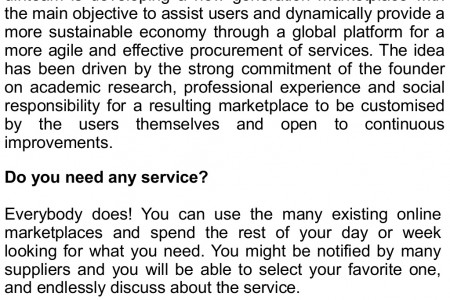
Happiness & Career Success
HAPPINESS & CAREER SUCCESS 1ID The average person spends more time working than any other activity. Unfortunately, nearly 2 out of 3 workers surveyed in the US and Canada say they're NOT HAPPY AT WORK. The following infographic explains WHY this is happening and what we can do to "turn the frown upside down" at work. HOW WE SPEND OUR TIME: Other 1.8 Hours Caring for Others 1.2 Hours Eating & Drinking 1.1 Hours Household Activities Sleeping 7.6 Hours 1.1 Hours Leisure/Sports 2.6 Hours Working 8.6 Hours For years, the conventional wisdom was that happiness was an outcome of hard work. WORK HARD GET RESULTS BE HAPPY If you want career success and happiness, you need to work harder, right?!? It makes a lot of sense, but researchers are now wondering whether it's the other way around. Is it possible that people get a lot of career success because they are happy? Dr. Happy EVIDENCE THAT HAPPINESS LL CAUSES CAREER SUCCESS A series of studies measured the positive affect of people at the beginning of the study and then the positive work outcomes some time later in the future. The studies aimed to prove that happiness leads to career success, and not the other way around. Cheerful people at age 18 attained more at work and had higher job satisfaction as measured 8 years later!* JOB SATISFACTION Year Year Year Year Year Year Year 3 4 6. Happier people are more likely to get a 2nd interview. Happiness was measured before they applied for the job.* Researchers measured the positive affect of insurance salesmen when they got hired. A year later, they discovered that the happier salesmen (as measured before they started working) sold more insurance and were twice as likely to still be in the job. They sold more insurance because they were happier to begin with.* Happy people miss fewer work days. They are also less likely to lose their jobs.* These studies show that happier, more positive people are more likely to get hired in the first place, tend to have more job satisfaction, perform better on the job, and miss fewer days... leading to a NEW Model for Happiness and Career Success: OLD MODEL: WORK HARD EH NESILTS BE HAPPY WORK HARD NEW MODEL: BE НАРPY VIRTOUS SPIRAL GET RESULTS WORK HAPPIER, NOT HARDER Sure, hard work is important. But the newly discovered trigger to being more successful in your career is to develop the psychological resources to be able to work harder (and smarter) by increasing your own positivity. So, how can you increase your positivity? TRY THE "THREE GODD THINGS" ACTIVITY, At the end of each day, think back over your day and write down three good things that happened in your life. For each good thing, think about and write down why it happened and why you feel good about it. Evidence shows in a few months you will increase your level of happiness significantly. Plus, you will likely enjoy the activity so much that you will continue doing it. TODAY'S GOOD THINOS 1. GOT FREE BREAKFAST 2 PRESENTATION WENT WELL 3. HAD TIME TO SPEND WITH KDS AFTER WORK inoomii the professional coach directory Need more support for your career and happiness? Noomii has hundreds of career coaches that can help you put the research into practice. www.noomii.com A thorough set of instructions for the 3 good things exercise are found here: http://www.actionforhappiness.org/take-action/find-three-good-things-each-day http://www-pmhs.stjohns.k12.fl.us/teachers/higginj/SODBE8052-ODBF1D11.12/Positive%20Psychology%20Progress.pdf SOURCES: *http://drsonja.net/wp-content/themes/drsonja/papers/BL2008.pdf http://link.springer.com/article/10.1023%2FA%3A1005539609679#page-1 http://ilzeearner.com/spring2012/HB712/s12/Work%20experiences%20and%20personality%20development%20%282003%29.pdf http://psycnet.apa.org/journals/psp/50/4/832/ http://jom.sagepub.com/content/25/6/875.abstract http://link.springer.com/article/10.1023/A:1019672513984#page-1 Roberts, B. W., Caspi, A., & Moffitt, T. E. (2003). Work experiences and personality development in young adulthood. Seligman, M. E. P., & Schulman, P. (1986). Explanatory style as a predictor of productivity and quitting among life insurance sales agents. Diener, E., Nickerson, C., Lucas, R. E., & Sandvik, E. (2002). Dispositional affect and job outcomes
Happiness & Career Success
Source
http://www.n...nfographicCategory
BusinessGet a Quote









